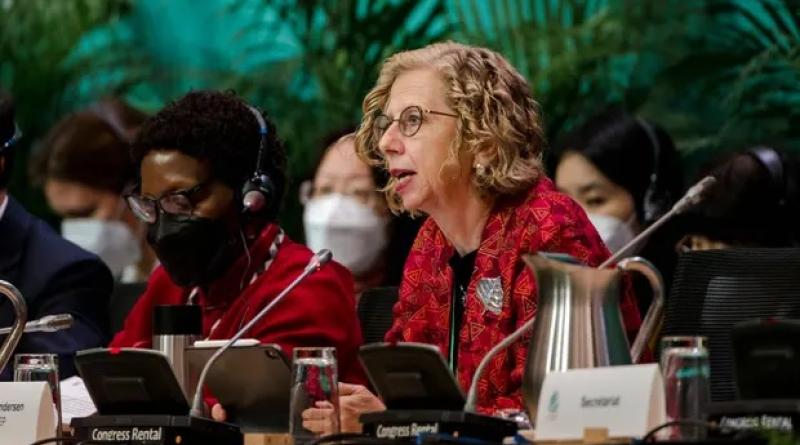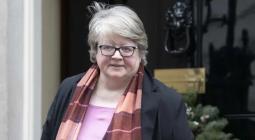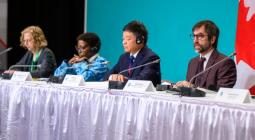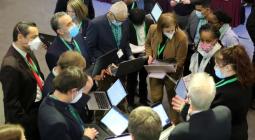‘Embrace history’: UN environment chief calls for immediate action on Cop15 deal

Inger Andersen said we must not ‘pause for a second’ as we ‘change the relationship between people and nature’
The UN’s environment chief has urged citizens, businesses and governments to “not pause for a second” in implementing the new once-in-a-decade deal to halt the destruction of nature, calling for changes in consumption patterns and attitudes.
“[With the new agreement] we are acknowledging that protecting the natural world represents a sum of linear efforts by governments, by businesses and by us – each one of us as individuals and consumers,” said Inger Andersen, the executive director of the UN environment programme.
“We need to change the relationship between people and nature. And if we are honest, time is not on our side. We’ve backed nature into a corner and it’s time to ease the pressure. We also know it is a remarkable thing and nature is very forgiving. If we give it half a chance, it will bounce back.
“Let’s not pause for a second. Embrace the history we have made in Montreal and let’s get down to the business of delivering the framework.”
Andersen made the comments at the closing press conference of Cop15 alongside Canada’s environment minister, Steven Guilbeault; the summit president, Huang Runqiu; and the UN’s deputy biodiversity head, David Cooper, who were in a buoyant mood after the conference came to an end.
Huang paid tribute to his Canadian counterpart and their efforts working together on the agreement during negotiations over the past few weeks, despite tensions between the two countries.
“The first few days of Cop15, the weather was not good. It was cloudy. My heart was heavy. I felt a lot of pressure about what kind of agreement we could make. I need to thank Steven Guilbeault for his efforts,” Huang said, pausing to shake the Canadian’s hand.
“There is a Chinese saying that snow brings good luck. In the second week, it snowed. During the small hours of yesterday, we celebrated, applauded and cheered. In the conference, we achieved historic success. A shared future for all life on Earth,” the Cop15 president said, adding that he would make sure that countries implemented the final agreement while China holds the presidency over the next two years.
Yesterday Huang shook hands with Ève Bazaiba, the Democratic Republic of the Congo’s environment minister, on the plenary floor – drawing applause from delegates – after a dispute over the way the agreement was rushed through was resolved.
“I’m extremely pleased to share that we’ve achieved a ‘Montreal moment’ for nature,” said Guilbeault. “For Canada, as well as many environmental organisations, we could only dream of achieving the level of ambition reflected in the text of the framework. Even only a week ago, who would have thought we would have a global commitment to protect 30% of lands and oceans?”
Nearly 200 countries signed the Kunming-Montreal agreement on biodiversity, which was praised by many.
Alok Sharma, the president of Cop26, tweeted: “A historic outcome at #Cop15 – the key, as ever, will be implementation of the commitments made by countries.”
Tony Juniper, the chair of Natural England, said: “The agreement reached in Montreal today is a real breakthrough, presenting a new opportunity for humankind during the course of this decade to bend historic declines of nature toward recovery.”
However, some were cautious about the outcome. Prof Ian Boyd, the former chief scientific adviser at the Department of Environment, Food and Rural Affairs, said: “The agreement reached at Cop15 in Montreal about protecting one-third of the planet for nature by 2030 has been welcomed. Many of my scientific colleagues thought it a step forward. But … setting high targets does not compel their realisation. Nothing has really changed since 2010, except an increasing urgency for action, so what makes everybody think that these new targets are going to work this time around?” he said, referring to the Aichi biodiversity targets set in 2010, none of which have been met in full.
The final agreement was negotiated over two weeks and includes targets to protect 30% of the planet for nature by the end of the decade, reform $500bn (£410bn) of environmentally damaging subsidies, and restore 30% of the planet’s degraded terrestrial, inland water, coastal and marine ecosystems.
cover photo: The executive director of the UN environment programme, Inger Andersen, said that 'given half a chance, nature will bounce back’. Photograph: Andrej Ivanov/AFP/Getty Images






